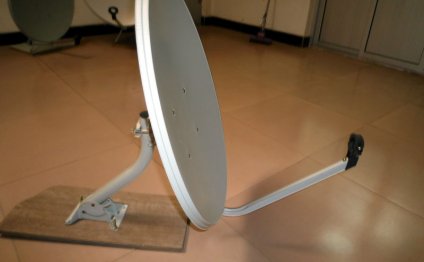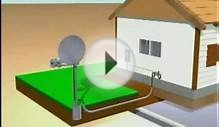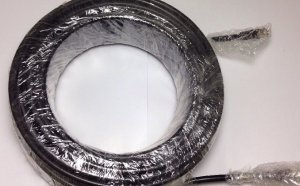
Satellite Dish antenna Installation
In 1996, the Federal Communications Commission (FCC) followed principles for Over-the-Air-Reception Devices (“OTARD” rules). The OTARD guidelines shield home owner or tenant’s right to put in, maintain or use an antenna for video clip development from direct broadcast satellites (DBS), broadband radio solutions (previously referred to as multichannel multipoint circulation services or MMDS) and tv broadcast channels (TVBS). But there are exceptions to the OTARD rules, including arrangements for safety and conservation of historic places.
The FCC later amended the OTARD principles to apply to leasing property where renter has actually exclusive use of an area, and also to customer-end antennas that accept and send fixed wireless indicators.
What kinds of Antennas Tend To Be Covered Beneath The OTARD Rules?
Listed here antennas or meals are included in these principles:
- A "dish" antenna one meter (39.37 ins) or less in diameter (or any size dish if positioned in Alaska), built to get direct broadcast satellite service, including direct-to-home satellite solution, or even obtain or transfer fixed wireless signals via satellite.
- An antenna that's one meter or less in diameter and is built to obtain movie development services via broadband radio service (cordless cable), or even obtain or send fixed wireless signals apart from via satellite.
- An antenna that's built to obtain neighborhood television broadcast signals.
Antennas utilized for AM/FM radio, amateur (“ham”) radio, CB radio, Digital sound Radio providers (“DARS”) or antennas used within a hub to relay indicators among numerous places aren't included in these guidelines.
What Types of Properties Are Covered?
Underneath the OTARD principles, an owner or a tenant gets the directly to install an antenna (that fits size limits) on residential property he has or over which he has actually unique usage or control. This consists of single family homes, condominiums, cooperatives, townhomes and made homes. In the case of condominiums, cooperatives and leasing properties, the principles apply to “exclusive use” places, like terraces, balconies or patios. “Exclusive usage” means a location associated with the property that only the tenant and individuals permitted because of the tenant may enter and make use of. If location is shared with other people or available without the renter’s authorization, it isn't regarded as being a special use area.
OTARD rules cannot affect common areas which are had by a landlord, a residential area association or jointly by condominium proprietors. These typical areas can include the roof or exterior wall space of a multiple home device. Under certain circumstances, if a typical antenna can be obtained for usage by residents, then community connection or landlord may prohibit the installation of an individually-owned antenna or satellite dish, supplied the signal high quality from the main antenna is really as good because the alert high quality from an individually-owned antenna or dish, plus the costs of utilizing the main antenna are not any greater than the expenses of an individually-owned antenna or meal.
What types of Restrictions Tend To Be Prohibited?
Limitations that restrict or wait installation, upkeep or usage of antennas covered by the rule are forbidden. For example, in most cases, demands to obtain approval before setting up an antenna tend to be prohibited.
What Kinds of Constraints Are Permitted?
Restrictions essential to avoid damage to rented property tend to be permissible, providing the constraints are reasonable. For example, a rent limitation that forbids tenants from harming the balcony floor when setting up an antenna is likely to be permissible.
An association, landlord or local government may enforce certain restrictions when safety is an issue or where a historical web site is included. An example of a permissible security restriction will be calling for that an antenna is firmly fastened down such that it will never be blown loose. Security restrictions should be narrowly written in order that they are not any more burdensome than essential to deal with a legitimate security function.
When there is a dispute about a restriction’s legitimacy, the association, landlord or municipality attempting to enforce the limitation must show it really is legitimate. Which means regardless whom questions the quality of the restriction, the person or entity trying to enforce the constraint must show your guideline is genuine.
Processing a Petition About an Antenna Restriction
If you were to think an antenna limitation is invalid, first try to solve it utilizing the restricting person or entity (the connection, landlord or local government). If you are struggling to resolve it straight, you can file a Petition for Declaratory Ruling utilizing the FCC or a court of competent jurisdiction.
There is absolutely no certain kind used for filing a petition using the FCC. Your petition, at a minimum, includes:
- an information of the realities, like the constraint you’re disputing;
- email address for all functions mixed up in dispute;
- copies regarding the precise language of constraint; and
- any appropriate correspondence.
RELATED VIDEO



Share this Post
Related posts
Digital TV antenna Installation Guide
The subject of digital television antennas and DTV reception is complex and would warrant a whole conversation on its own…
Read MoreSatellite Radio antenna Installation
Have your advanced satellite radio setup neatly, reliably and expertly by a Geek Squad Autotech. Our Autotechs are MECP-certified…
Read More










